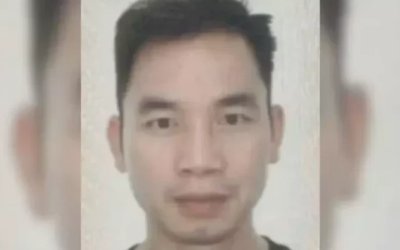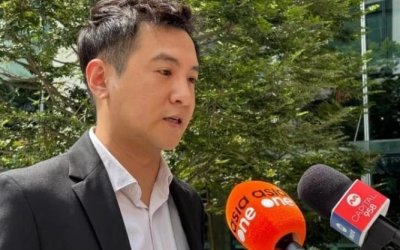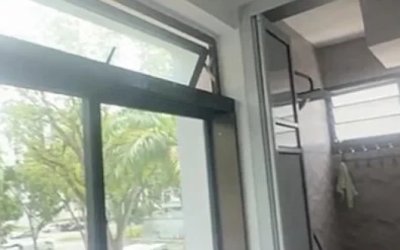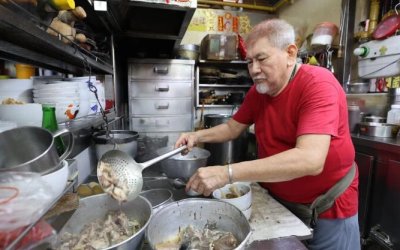3月6日,新加坡衛生部兼通訊及新聞部高級政務部長普傑立醫生在國會上有關家庭醫生的發言。
以下內容為新加坡眼根據國會英文資料翻譯整理:
葉漢榮先生強調,確保參與健康SG計劃全科醫生診所的家庭醫生擁有必要的資源和專業知識,以有效應對慢性疾病。黃玲玲女士也問到政府打算如何支持家庭醫生的專業發展,特別是他們可能涉足越來越多的領域,例如影響病人生活方式選擇的社會處方,以獲得更佳的健康結果,以及治療常見的精神健康狀況。賽義德哈倫醫生詢問了支持健康SG計劃向預防保健轉變的專業人員的留任計劃。
衛生部正在與高等教育機構(IHLs)密切合作,以增加本地培訓渠道。我們也致力於發展初級和社區護理中的家庭醫生,並更加強調家庭醫學培訓,例如鼓勵更多醫生參加研究生家庭醫學培訓,如家庭醫學畢業文憑(Graduate Diploma in Family Medicine)和家庭醫學碩士(Masters of Medicine in Family Medicine)課程。家庭醫學的研究生培訓也得到加強,以幫助家庭醫生更好地應對不同年齡組的複雜疾病。培訓通過各種形式進行,包括視頻會議和網絡研討會,讓家庭醫生更靈活地跟上家庭醫學領域的最新發展。
同時,我們正在增加社區護士、藥劑師和其他聯合衛生專業人員的數量,並為他們提供跨學科培訓,使他們能夠在其執照的最高級別上實踐。我們還將擴大社區藥劑師和其他聯合衛生專業人員在初級和社區護理中的作用,以改善社區護理的提供。我們還將培訓更多的無醫學訓練人員。這些人員可以承擔任務,例如安排初級體檢和協調轉診到社區項目。醫護專業人員可以專注於臨床護理。
為了確保患者得到一致、高質量的護理,初級照護團隊將得到健康SG計劃護理協議的支持。這些護理協議明確規定了指導家庭醫生管理每種健康狀況的清晰流程、轉診和數據流。在健康SG計劃啟動期間發布了12個護理協議,涉及糖尿病、高膽固醇等常見慢性疾病的管理,以及吸菸戒斷和體重管理等預防保健措施。未來將開發更多護理協議,涵蓋更多慢性疾病。我們意識到,一些家庭醫生可能在管理某些慢性疾病方面擁有更多經驗。因此,我們將與新加坡家庭醫學學院(CFPS)、護聯中心(AIC)和醫療保健集團緊密合作,為每個護理協議的家庭醫生和護理團隊開展培訓。我們還將加強與社區輔助小組(COMIT)的聯繫,為有心理健康需求的患者提供非藥物心理健康支援,以支持家庭醫生提供綜合護理。
陳有明醫生詢問衛生部是否正在審查家庭醫生診所提供全面護理所需的時間。隨著我們動員家庭醫生與他們的患者共同制定健康計劃,其中可能包括生活方式調整和定期健康篩查,我們預計長時間在診所諮詢的患者比例將增加。在規劃未來初級護理能力時已考慮到了這一點。為了讓家庭醫生專注於優化臨床護理,我們在診所和私人家庭醫生診所採取了團隊護理的方法。在診所中,患有慢性疾病的患者被分配到由家庭醫生、護理經理和護理協調員組成的多學科護理團隊中。
在私人家庭醫生診所中,PCNs紮根並加強慢性疾病的團隊護理,通過整合資源來組織由護士和護理協調員提供的核心輔助服務,他們與家庭醫生共同管理患者的狀況。參與大型基層醫療護理網絡計劃(PCN)的診所數量已經增長,從2018年的340家診所增加到了今天的1000多家診所。
我們的醫療保健集團也將作為區域健康管理者,與家庭醫生和其他合作夥伴合作,解決其地區居民的健康和社會需求,並在社區中提供護理。例如,家庭醫生可能與專科醫生或醫院醫生合作管理具有更複雜需求的患者。出院後,醫院將把患者轉介給他們註冊的家庭醫生,以確保醫院空間和初級護理空間之間的護理連續性。

以下是英文質詢內容:
Mr Yip Hon Weng highlighted the need to ensure GPs in participating Healthier SG GP clinics have the necessary resources and expertise to effectively manage chronic conditions. Ms Ng Ling Ling also asked how the Government intends to support the professional development of GPs, especially in areas that they may be increasingly involved in, such as social prescriptions to influence patients' lifestyle choices for better health outcomes and treatment of common mental health conditions. Dr Syed Harun asked about retention plans for healthcare professionals to support Healthier SG and the shift towards preventive health.
MOH is working closely with Institutes of Higher Learning (IHLs) to increase local training pipelines. We are also committed to the development of family doctors in primary and community care and have placed a stronger emphasis on family medicine training, such as encouraging more doctors to take up postgraduate Family Medicine training like the Graduate Diploma in Family Medicine (GDFM) and the Masters of Medicine in Family Medicine. Postgraduate training in Family Medicine is also strengthened to help family doctors be more equipped to manage a wider range of complex conditions across different age groups. Training is delivered through various modalities including video conferencing and webinar platforms, allowing GPs more flexibility as they keep up to date with the latest developments in family medicine.
At the same time, we are increasing the number of nurses, pharmacists and other allied health professionals in the community, and are providing interdisciplinary training to empower them to practise at the highest level of their licences. We will also expand the role of community pharmacists and other allied health professionals in primary and community care to improve care delivery in the community. We will also train more lay extenders. These are non-medically trained persons who can undertake tasks, such as arranging the initial health screening and coordinating referrals to community programmes. Healthcare professionals can then focus on clinical care.
Primary care teams will be supported with Healthier SG Care Protocols to ensure consistent, quality care for patients. These care protocols lay out clear processes, referrals and data flows to guide GPs in managing each health condition. Twelve care protocols were released during the launch of Healthier SG on the management of common chronic conditions, such as diabetes, high cholesterol and preventive health, such as smoking cessation and weight management. More care protocols will be developed to cover more chronic diseases in the future. We recognise that some GPs may have more experience in managing certain chronic conditions than others. Therefore, we will work closely with the College of Family Physicians Singapore (CFPS), AIC and healthcare clusters to roll out training for GPs and their care teams for each care protocol. We will also support GPs in the provision of holistic care for patients with mental health needs by strengthening the links to COMIT for non-pharmacological mental health support.
Sir, Dr Tan Wu Meng asked if MOH is reviewing the time required by GP clinics to deliver holistic care. As we mobilise family doctors to co-develop health plans with their patients, which can include adjustments to lifestyles and regular health screening, we expect that the percentage of patients requiring longer clinic consultations to increase. This has been taken into account when planning for future primary care capacity. To allow family doctors to focus on optimising clinical care, we have adopted a team-based care approach in polyclinics and private GP clinics. In polyclinics, patients with chronic conditions are assigned to multidisciplinary care teams comprising family physicians, nurse care managers and care coordinators.
In private GP clinics, PCNs anchor and strengthen team-based care for chronic diseases, by pooling resources to organise core ancillary services provided by nurses and care coordinators who work with GPs to jointly manage the patients' conditions. The number of clinics participating in a PCN has grown, from 340 clinics in 2018, to more than 1,000 clinics today.
Our clusters will also step up as regional health managers, working with family doctors and other partners to address health and social needs of residents in their region and anchor care in the community. Family doctors may work with specialists or hospital doctors in the management of patients with more complex needs, for example. Upon discharge, the hospitals would refer patients to the family doctor they are enrolled with, to ensure continuity of care between the hospital space and the primary care space.
新加坡國會丨來源
新加坡國會丨圖源























